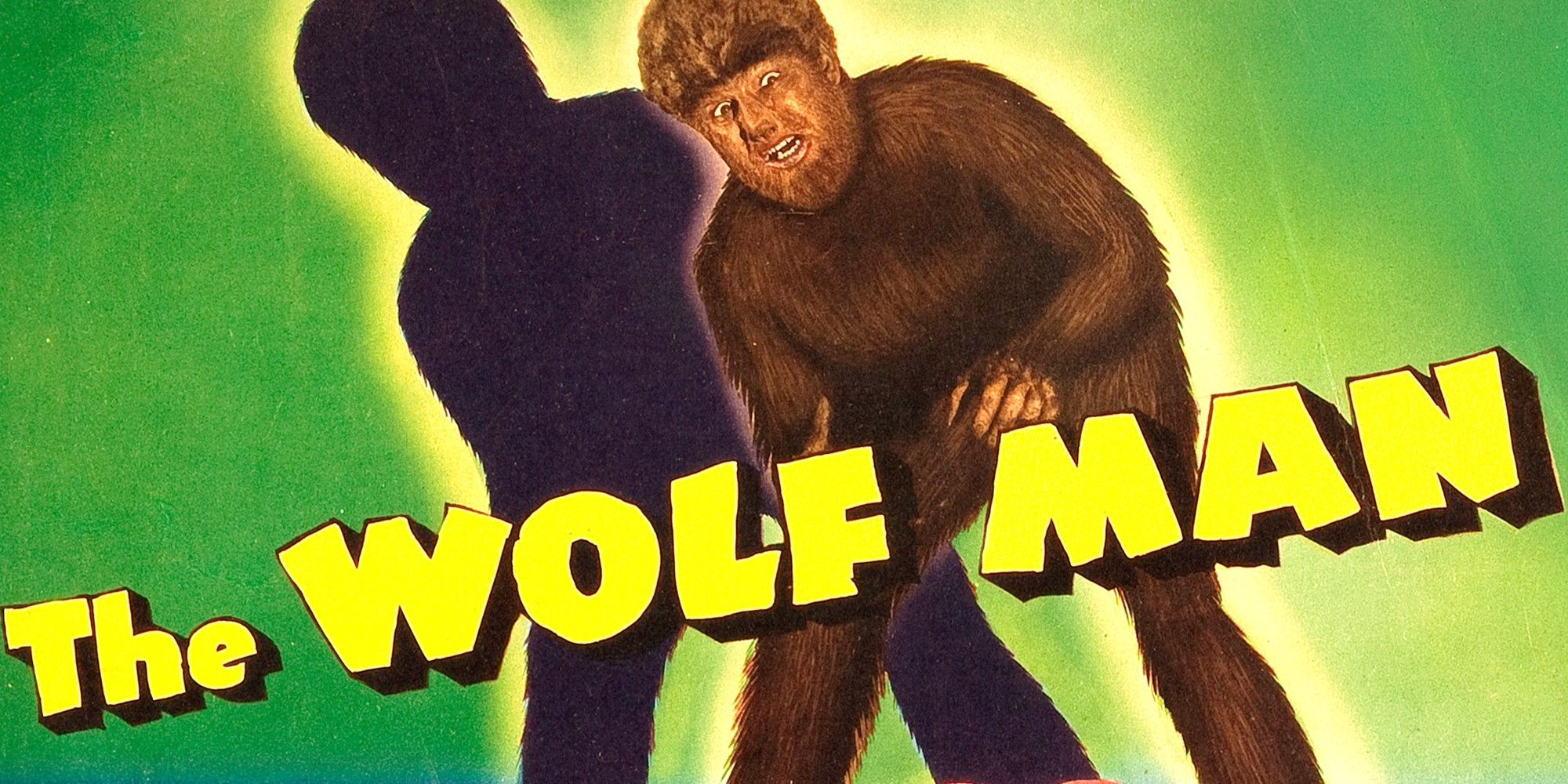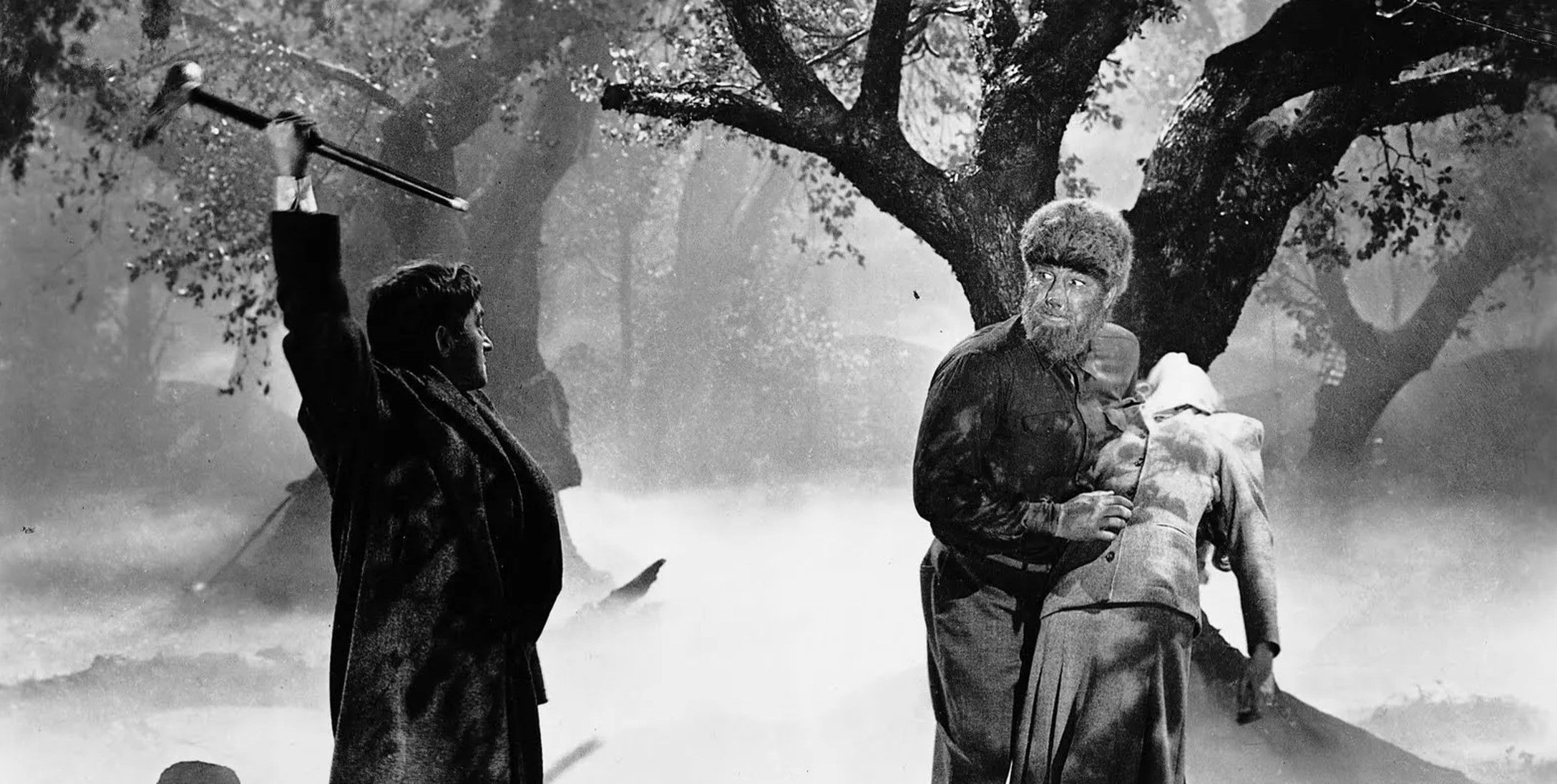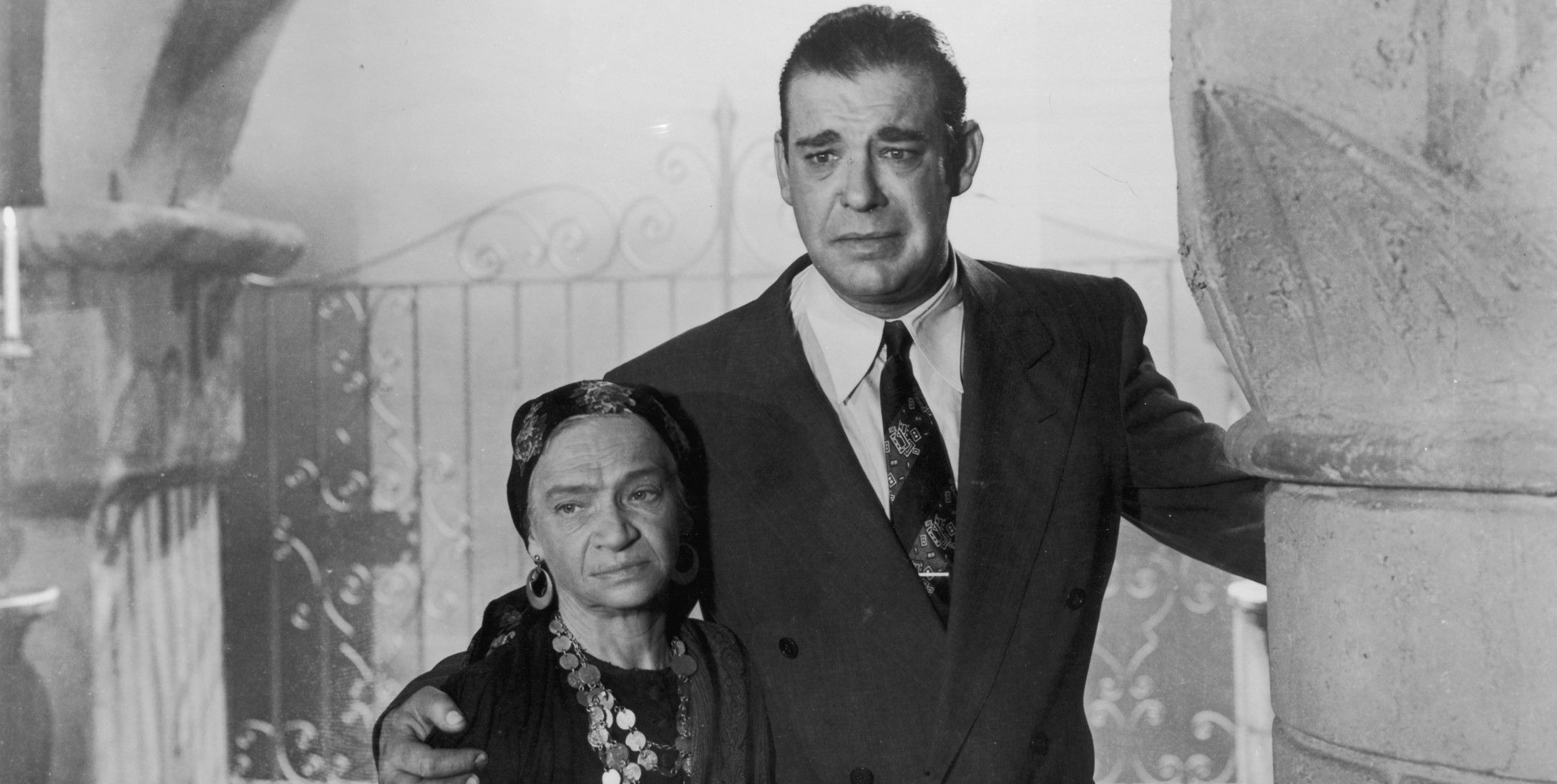The Wolf Man, Universal's 1941 monster movie, has continued to influence the horror genre for nearly 80 years. A moody, thematically-rich film, The Wolf Man didn't have any major literary work to spawn from (unlike some of Universal's other horror classics like Dracula and Frankenstein). The movie's creativity is the result of its talented production team, which included director George Waggner and screenwriter Curt Siodmak. The title monster -- and his tragic alter ego Lawrence Talbot -- is portrayed by Lon Chaney, Jr., whose father pioneered horror films during cinema's silent age. Claude Rains, famous for his roles in Casablanca and The Invisible Man, portrays Lawrence's father, Sir John.
The Wolf Man is a special movie for a variety of reasons, but its longevity, first and foremost, is owed to its strong character-driven drama. At the film's core is a story of a son attempting to reconcile with his father, as well as themes of discrimination and superstition and even unwitting filicide. While lycanthropy has been a popular element in worldwide legend, screenwriter Siodmak created a set list of "rules" for the werewolf curse that plagues Lawrence, essentially setting the standard for decades to come. An air of paranoia and dread persists throughout The Wolf Man, with the human drama keeping everything grounded and emotionally engrossing. As a result, the movie's horror aspects succeed so well and are so memorable precisely because the audience is introduced to characters they can relate to -- or at least care about.
The Wolf Man's Spooky Atmosphere Helps Convey Its Tone
Visually, The Wolf Man is a masterpiece of spooky set design, with dark, barren trees and a constant low mist during some of its final scenes. The transformation from man to wolf monster may seem dated to some viewers, given the advents in prosthetics, makeup effects and CGI that modern horror has utilized, but once Chaney is in full wolf-man mode, his eyes, movements and the delicate details of his wolf-like facial features (created by legendary makeup artist Jack Pierce) sell the character. The simple visceral appeal of the wolf man prowling around the atmospheric sets makes for great entertainment.
Another thing that helps the movie's monster stand out is his inherent moral grayness. He isn't an evil seducer like Count Dracula or the mad scientist who turns himself invisible -- the crux of this monster's nature is a man who can't control his change into a wild animal. The wolf man's dangerous, violent actions eventually turn him into a hunted, sympathetic creature.
The Original Wolf Man Howls Louder Than Many of Its Modern Competitors
For those doubting the movie's impact on horror cinema, The Wolf Man made a splash from the start -- with Chaney reprising his role in four loosely-connected sequels throughout the '40s, helping to bolster the original Universal monster cinematic universe. John Landis, known for his directing work on comedies like The Blues Brothers and Trading Places, cited The Wolf Man as a major inspiration for his 1981 movie An American Werewolf in London. In 2010, the 1941 creature feature was reborn as The Wolfman, directed by Joe Johnston. Alas, even Anthony Hopkins in full werewolf getup couldn't save the remake from its emotionally flat story. As Universal's monsters helped start one of cinema's first cinematic universes, there have been attempts to compete with Marvel by creating a new "Dark Universe" with all-new renditions of Universal's classic properties. Since Tom Cruise's Mummy remake from 2017 proved to be a huge disappointment, there's been little to no news on that front.
Even though he doesn't get top billing, the original Wolf Man is Lon Chaney, Jr.'s movie. His dominating physicality as both Talbot and the wolf man create the desired image, but it's his eyes that give the character's emotions a palpable presence. Rains, whose character slays the wolf man with a silver-capped walking stick at the end of the film and discovers that it was actually his son, expresses quiet, almost dignified shock like few others can. The Wolf Man, no matter the decade, is an entertaining, pioneering film, but it probably wouldn't be as iconic as it is now without its emotional weight. In some ways, it's tonally a cousin to the noir films of its time, as the story doesn't leave anybody with a happy ending, least of all the wolf man himself.



